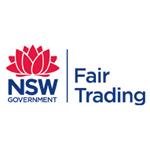
Changes to the associations incorporation laws in NSW
Changes have been made to the association laws in NSW. These include amendments to the Associations Incorporation Act 2009, as well as the addition of a new regulation.
These changes came into effect on 1 September 2016. Most community radio stations are incorporated associations and may be impacted by these changes. If you are unsure of your station's status, please get in touch to check.
Registration of an association and change of an association’s name
An association is no longer required to reserve a name prior to making an application to register an association, or an application to change an association’s name. This reduces the cost for applicants.
Official address must be in NSW
The official address of the association must be in NSW, where the public officer can generally be found and where documents can arrive by post. Fair Trading must be made aware of any changes to the address of the public officer. It cannot be a PO box.
New matters to be addressed in the association's Constitution
Constitutions can still be based on either the model constitution or associations can develop their own.
There are three new matters every constitution must address:
- The maximum number of consecutive terms of office of any office-bearers on the committee (if specified)
- That ballots can be postal or electronic (the electronic voting method is new)
- The winding-up of an association
If you would like to make any changes to your constitution, you will not be charged a fee to do so until 1 September 2017.
Model Constitution
There have also been some other small adjustments to the model constitution. If you have adopted the model constitution then these changes automatically apply from 1 September 2016. Please refer to the summary of changes to the model constitution for further information.
Electronic ballots and postal ballots
An association will be able to put a resolution to its members in a postal ballot or in an electronic ballot, where this is permitted by an association’s constitution.
This does not permit a combination of postal and electronic voting to pass an ordinary or special resolution, or a combination of posting/electronic voting and voting for a general meeting.
Due care and diligence duty of committee members
A new duty for committee members is that they must carry out their functions for the benefit of the association, so far as practicable, and with due care and diligence.
Ideally it is best to provide a list of duties to prosprective board members before they take office.
Personal liability of committee members limited if acting in good faith
From 1 September 2016, the act will provide protection from personal liability for committee members, or those working on orders from a committee member, who are acting in good faith.
Financial records
Associations must keep their financial records and minutes in written or electronic form. If kept in electronic form, the records and minutes must be able to be converted to a hard copy and made available within a reasonable time to a person who is inspecting the records.
The financial records must be kept for a minimum of five years.
Fees
The fees for lodging the annual financial return has been reduced for Tier 2 associations and increased for Tier 1 associations. These fees are listed here.
For full information regarding these changes, please visit Fair Trading NSW’s website.
Facebook comments